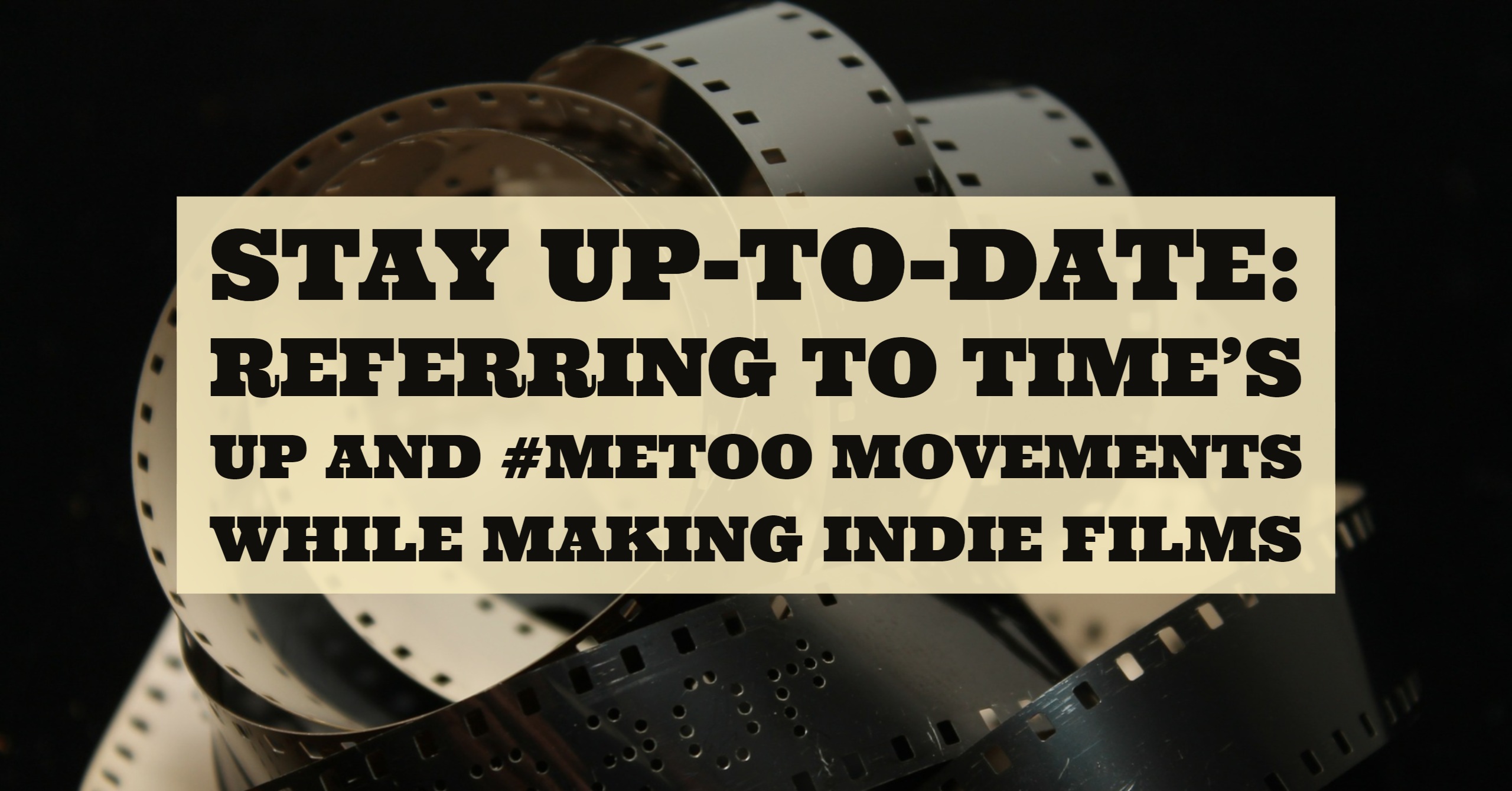Time’s Up movement has swept the main ceremonies of the film industry. BAFTA was full of moments of solidarity for the Time’s Up movement, the Golden Globe got famous for actors wearing black to protest sexual misconduct in Hollywood. As a result of #MeToo and Time’s Up Emma Watson even announced the launch of a Set of Principles promoted by the British Film Institute (BFI) and other major UK film organizations.
What is it #MeToo and Time’s Up? Let’s dot the i’s and cross the t’s here.
#MeToo movement is not just a hashtag for social networks, it’s a community healing therapy for people who suffered from sexual assault and harassment in the workplace. It gained popularity among celebrities in October 2017 when Jessicka Addams (an American singer) accused Twiggy Ramirez (the former bassist and guitarist of Marilyn Manson) in rape, domestic violence, and verbal abuse. Later Gwyneth Paltrow, Jennifer Lawrence, Uma Thurman, and others shared the hashtag on Twitter and condemned sexual harassment and assault publicly.
Time’s Up is a movement against sexual harassment that was started on January 1, 2018. The founders are Hollywood celebrities who protested against such phenomenon as Weinstein’s effect (numerous allegations and accusations against Harvey Weinstein in sexual harassment).
While everyone understands the complexity horror and holonic character of the harassment and sexual misconduct that reign the film industry today, very few do understand how to fight back and prevent such cases on location in the future. Here is a list of six tips that will help you avoid gaining dirty fame in the indie film industry.
1) Be proactive
You need to present yourself as a person whom your crew can talk to at all times. Your goal as the head of the film (whether you’re a director or a producer) is to ensure that you do everything possible to prevent sexual harassment issues from arising. Within the competitive environment of the film industry very often people believe that harassment is unavoidable, yet as a director, you do have the power to state that such conduct should not be expected and that such issues are not ok.
As the leader of the whole film process directors frequently don’t have time to take care of everything. For this reason, experts from Red Rock Entertainment film investment company even say that they are ready to finance an additional position on location in order to avoid the negative reputation of the film and the company in general.
2) You have the power
There is no difference if you’re a beginner in indie films or if you’re David Lynch because you as a director have the power to call out inappropriate behaviour. Always remember that your actions and your choices do matter on location. Once you get any feedback about any unpleasant situation from any of your crew members, ensure that you take an instant action! If you make one slip and let things drift, you may lose every single chance at getting your film done. Be firm in your decisions to fire even the best expert if any episode of harassment occurs.
3) Guarantee equality
It’s always important to set the right tone for the industry in your team. Even if your crew consists of all newbies, you need to show them a good example in terms of relationships inside of the team. Your goal is to provide equal salaries for all genders, equal treatment for all crew members, and be absolutely transparent about it. And it doesn’t matter if you have a huge budget or a very restricted one.
4) Have a diverse crew
When you’re looking for the people to work with, you definitely want to get the best crew possible; this is even out of the question. However, today #MeToo movement brought its corrections into the industry. If you allow yourself any smallest bias about crew member’s gender, skin colour, or anything else, you risk getting into troubles. If this kind of bias comes into play among the other crew members, you need to ensure that you suppress this kind of behaviour.
Other biases you should be aware of are related to contacts outside of your crew. You can catch side of your friend directors keeps recommending only male crew members or that you feel doubts that a woman works in VFX. The sooner you clarify to yourself these harmful behaviours, the easier it will be for you to change them.
5) Question the content
The script is the foundation of any film, which means that you cannot build any safe space on location if the script is biased. You always need to read the script critically and specifically check it for any biases. Ensure that women are represented more than just sexual objects, verify that if your film contains sex scenes they are justified within the plot and don’t seem gratuitous. Very carefully examine sensitive topics such as harassment, rape, and consent. And try to avoid gender and race stereotypes and clichés in your films. Gary Collins from Red Rock Entertainment says that he is more likely to invest in a film without the abovementioned biases. Try to present even the most controversial topics and situations in the most neutral manner to protect your film, yourself, and your crew. No doubt, you don’t want to become a member of a “Weinstein’s effect” team.


